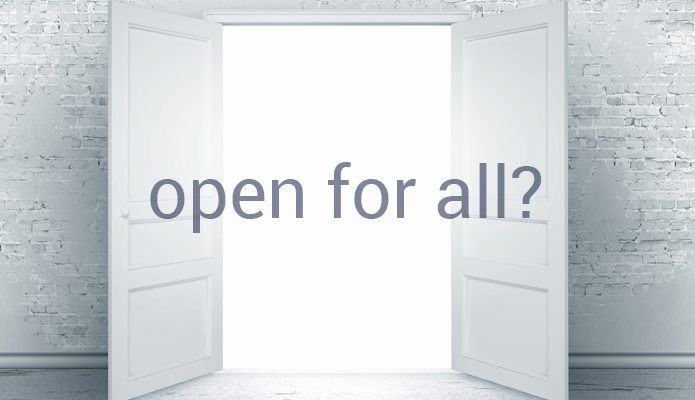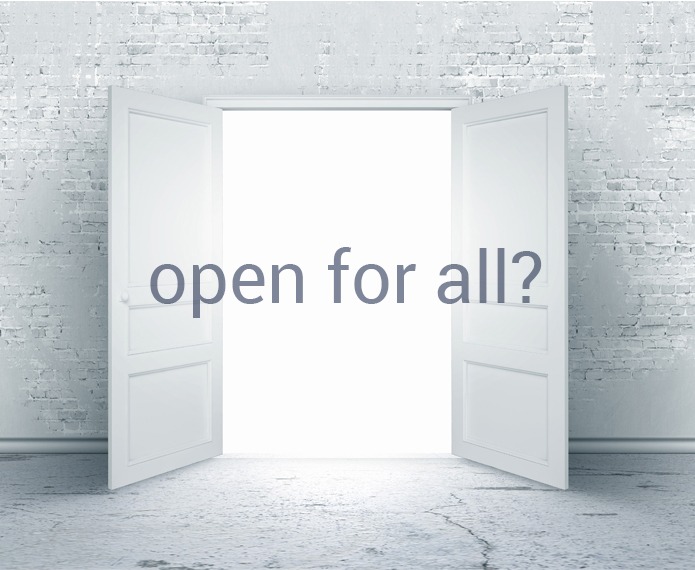The thinking of Comrade F. Dobler from the early 20th century remains relevant and even prescient: those who need open access to information may be those who are fundamentally excluded from public libraries.

Roads and Fences: the Myth of Public Library Neutrality
As the saying goes, if you stand in the middle of the road you will get run over.
Or, more colourfully perhaps, if you sit on the fence you will get a splinter in the butt.
I had occasion to ponder these metaphors on three occasions recently.
CILIP
The first of these was when I tuned into a raging Twitter debate in the UK regarding a posting by CILIP (Chartered Institute of Library and Information Professionals) Chief Executive, Nick Poole, which seemed to align CILIP with the Conservative Party agenda.
One school of thought was that Poole was being pragmatic by recognizing that the Tories were in power for five more years and it made sense to create some synergies between Conservative policies and CILIP’s aspirations.
The opposing school argued that, by aligning itself with Tory PM David Cameron, CILIP was signalling that it supported the values and actions of his government. And this is the same government which has closed hundreds of public libraries and consigned many professional librarians to the unemployment line.
A third school (straddling the middle of the road or balancing precariously on a fence) argued that CILIP must remain neutral at all times and not align itself with any political party. This camp view neutrality as a strength and point to CILIP’s Royal Charter as evidence that it should not take part in the great political game.
PEN
The second time that roads and fences came to mind was when I attended the 81st PEN International Congress in Quebec City.
I went to a debate about freedom of expression in Canada and I was impressed by how ‘political’ the speakers were, arguing strongly against Stephen Harper’s Conservative government. The historical parallel they drew was with 1938 when no one spoke out against the Nazis. The PEN position was that writers should take a position and stick to it. PEN stand for freedom of expression and see it as their job to speak out in its defence. Otherwise they will be nothing more than a mutual appreciation society.
For example, PEN has spoken out against the War on Terror. In doing so they have chosen risk over comfort and they recognise that nothing can be achieved unless you are willing to get into trouble. They see it as an endless struggle for justice.
PEN also intervened in the refugee crisis in Europe. When people said ‘what has this got to do with writers?’ they reframed the crisis in terms of dignity and human rights – ‘by not speaking out we diminish ourselves.’ This is proof that professional associations do not have to be ‘neutral’ or bend themselves to fit the agenda of the ruling party.
CULC
The third occasion when this issue of neutrality versus action entered my world was during the run up to the Federal election in October.
There was a discussion among CULC (Canadian Urban Libraries Council) members about what public libraries could or should not do during this period. Different libraries had varying interpretations of the Elections Canada advice on this issue, but the prevailing view seemed to be that party politics should be kept out of public libraries.
I fundamentally disagree.
Being Political
I think that if we are serious about the role which public libraries play in fostering democracy and promoting freedom of expression, then we should be pro-active and interventionist before, during and after elections. In other words we should be political at all times. And by this I mean that public libraries should not only be political, but party political as well.
We should look at the values and beliefs which under pin an inclusive, diverse, modern, relevant and sustainable public library and compare these with the party platforms which are on display at election time. We should then pin our colours firmly to the party which is most closely aligned with our aspirations and direction of travel. And we should be equally vocal against those parties which seek to do us harm.
We should positively encourage the candidates from all political parties to campaign in our libraries. I’m not talking about the carefully choreographed rituals of the hustings which generate more heat than light, but one-on-one contact between aspiring politicians and library users and staff. This will enable meaningful conversations about what these candidates will do for libraries, if they get into power.
Once elected, the public library has an ongoing role in holding their feet to the fire. For example, in Cuba annual meetings are organised – often in public libraries – when the elected representatives of the people are held to account. And if they are found wanting they are replaced.
The great strength of the public library is that it provides democratic, public space that is open to all. This should never be truer than when people are given the opportunity every four years to have a say in the future of their country, their communities and their public libraries. By staying out of the road and off the fence, public libraries can demonstrate that they are both community-led and needs-based.
John Pateman is the CEO / Chief Librarian of the Thunder Bay Public Library. The Open for All? column explores the nature of libraries and their commitment to openness.
This Post Has One Comment
Comments are closed.

[…] John Pateman explores political neutrality in his latest Open Shelf: Open for All? column, Roads and Fences: the Myth of Public Library Neutrality […]